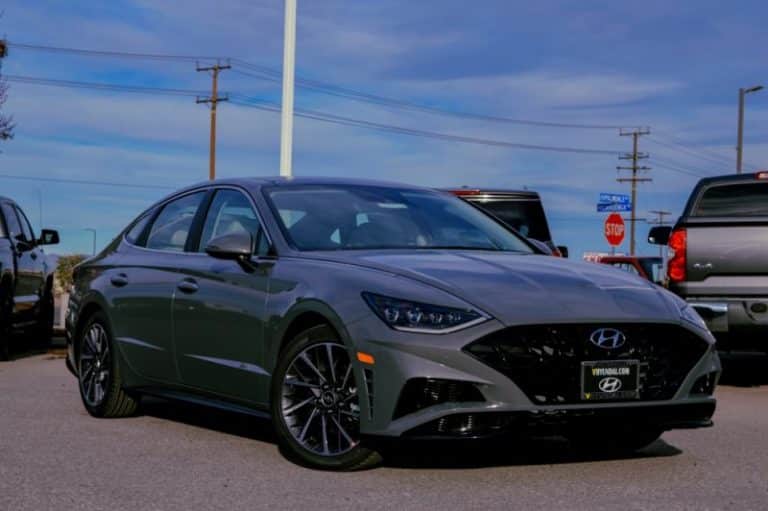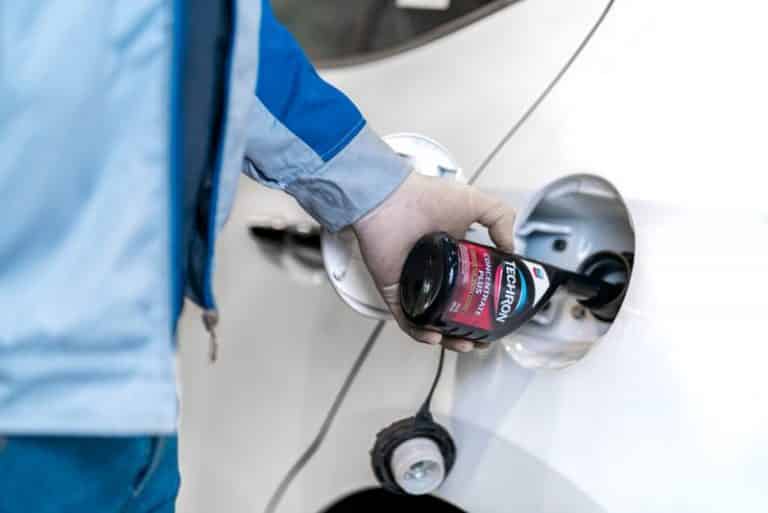Does Hyundai Santa Fe Turbo Need Premium Gas? (Let’s See)
It’s no secret that the price of gasoline can add up as you drive. So for many people, it’s not just a matter of saving some money — it’s about whether they can afford gas.
When you live in an area with many long commutes and high prices, your fuel costs could make or break your budget, and knowing if your car will require premium gas would help you draft out the perfect budget.
And If you are one of those drivers who want to save as much money on gas as possible, you’re probably looking forward to the day when you can stop using premium gasoline when driving the Hyundai Santa Fe Turbo.
That’s why many people want to know if the Hyundai Santa Fe turbo needs premium gas?
The Hyundai Santa Fe Turbo does not need premium gas to run its engine. Moreover, several studies have proved that premium gas has no advantage over regular gas in vehicles that don’t require a higher octane rating.
What Kind Of Gas Does A Hyundai Santa Fe Take?

Hyundai Santa Fe Turbo was designed to use only unleaded fuel having a pump octane number of 87 (Research Octane Number 91) or higher.
As a result, your Hyundai Santa Turbo is designed to obtain the best performance with unleaded fuel and reduce exhaust emissions and spark plug fouling.
What Gas Does Hyundai Recommend?
The majority of Hyundai cars and SUVs are ideally suited for the regular unleaded gas option.
This is because most Hyundai automobiles are designed with engines that do not require gasoline with higher octane ratings.
These ratings estimate how well a fuel can resist engine knock when combustion is taking place.
A higher octane rating will have a better performance with a higher-compression engine, like one with a turbocharger or supercharger, because they combust faster.
Furthermore, does your Hyundai Santa Fe Turbo need premium gasoline? It doesn’t.
Several studies have proven that premium gas has no advantage over regular gas in vehicles that don’t require a higher octane rating.
Therefore, use the right fuel, so you can increase your savings and have your vehicle in the best condition.
While regular gasoline is excellent for most Hyundai vehicles, it’s wise to examine your vehicle’s owner’s manual to double-check.
Also, always reach out to the Hyundai service center if you have any questions.
Fuel economy is a critical aspect of vehicle ownership. The more efficiently your vehicle burns fuel, the less often you’ll have to visit the gas station and the more money you can save per gallon.
However, your premium-gasoline engine doesn’t just burn fuel because it wants to.
It does so because when a machine needs premium energy, it will generally work better when provided with that kind of gasoline rather than regular gasoline.
If you don’t know whether you need premium gas, find out what type of gasoline your vehicle needs (it should say in the owner’s manual or on the gas tank door) and use that grade of fuel as often as possible.
Make sure not to go below 87% octane. You might also want to look up your model year and do research online to see if there are any unique recommendations.
While premium gasoline is more expensive than regular gasoline, it’s better for your car.
This is because it has a higher octane rating, which means it burns cleaner, has a higher energy content (allowing you to travel longer distances on one tank of gas), and has less carbon residue in the tailpipe.
If your Hyundai vehicle model requires premium gasoline, you’ll see “premium fuel recommended” when you first turn on the car.
You may also notice that your engine runs louder than usual on standard gasoline.
If this happens, there’s no damage to the engine—it just means it could use the premium to run at its best performance.
Differences Between Standard And Premium Gas

You may be wondering why the difference between regular and premium gasoline has to do with your car, but there’s a good reason. Regular gas is cheaper, but it also has lower energy content.
So, in addition to being less expensive, premium gas produces fewer carbon deposits (aka soot) in the engine and reduces the chance of clogged fuel injectors.
Your vehicle’s warranty will most likely not cover damage caused by bad fuel.
However, if you have this problem addressed promptly by an expert mechanic, you might be able to get it replaced under warranty.
On the other hand, you can get your money back from the dealer that sold you a defective part.
Premium gas is more expensive than regular unleaded gas. So a big concern for many people who drive cars with turbocharged engines is whether they have to use premium gas all the time.
Another concern is if they have some kind of orientation as to what kind of fuel they put into those vehicles’ tanks.
It’s important to note that the difference between premium gasoline and regular gasoline isn’t in terms of quality but instead octane levels.
Octane is a chemical compound that you can find in petroleum and a variety of other sources.
For example, it’s used as a fuel for internal combustion engines, such as those you can find in cars like Hyundai Santa Fe Turbo, and it plays a big part in the performance these engines are capable of.
The exact octane level varies from one brand or location, but generally, premium gasoline consists of or contains some amount above 91 percent. Regular gasoline consists of or has somewhere around 87 percent octane.
If your car’s engine uses premium gasoline—and it doesn’t necessarily need to be all the time—then there are things you might want to keep in mind before deciding whether you want to put premium fuel into its tank.
For one thing, premium gas is more expensive than regular unleaded gas.
However, the difference isn’t huge; it’s still noticeable and could add up over time if you put high-octane gas into your car when it’s not necessary.
On top of that, high-octane fuel burns slightly slower than low-octane fuel does. So, using it when you don’t need to means that your engine won’t perform as well overall.
In the end, this will harm your car’s power output and fuel economy since the engine won’t burn through its fuel as efficiently.
Also, I’d like to summarize other critical differences between premium and regular gas below:
- Premium gas is more expensive than regular gas.
- Premium gas also has higher octane ratings than regular gas.
- High-performance class and high-compression cars like Ferrari and Bugatti need premium gas to perform at their best. In contrast, regular gas is already suitable for most of the other common to mid-class cars like your Hyundai Santa Fe Turbo.
- Premium Gas contains specific detergent properties that help clean the engine; regular gas fails. So, it has lesser detergent properties than the premium gas.
Conclusion
Knowing if your Hyundai Santa Fe Turbo requires premium gas is a big move that’ll help in saving you money and resources in the long run.
Of course, this doesn’t mean that if your engine perfectly runs on premium gas, you can’t use regular gas.
It’s just good to note that you shouldn’t use premium gas all the time, as regular gas is more cost-effective!






